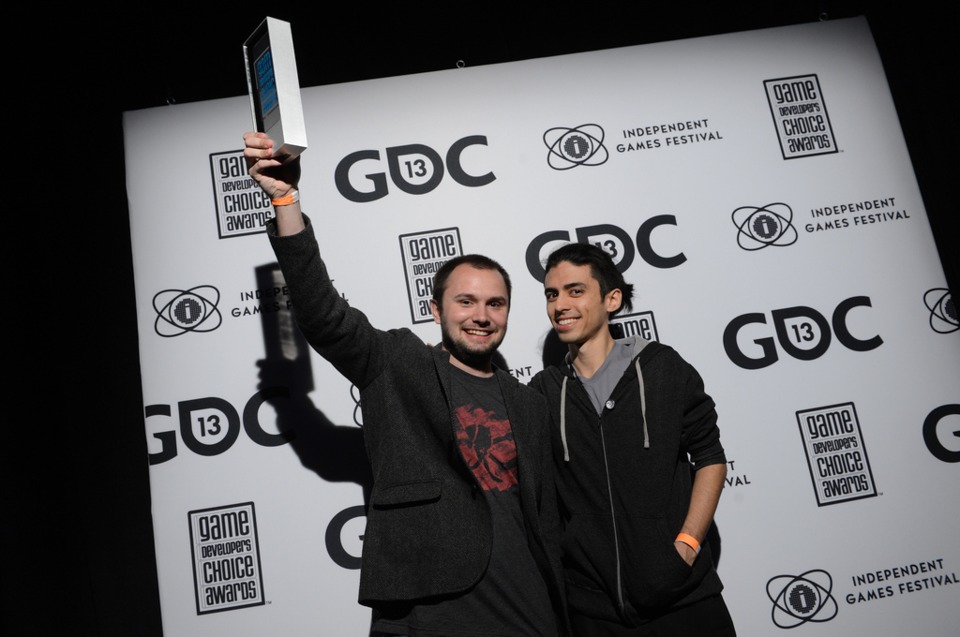
Matthew Davis and Justin Ma are the duo that comprise Subset Games, developers of FTL: Faster than Light and 2018's Into the Breach.
I’d like to steal a moment to introduce who we are. Justin and I (Matthew) are the core of the very small studio Subset Games. We work with a lot of other super talented people to fill out the gaps in our skill sets when needed, but the day in and day out grind of development and design falls on our shoulders.
When making our separate top five Game of the Year lists here, I was not surprised to see we made two completely different lists. Justin and I approach game design and games in a very similar way, but have shockingly different taste in the games we play and enjoy the most. That split has served us very well, as we bring different inspirations to the table during development. For example, we both came at tactics design for Into the Breach from different sides. Justin was looking more to FF Tactics / Advance Wars, while I was looking more at the modern X-COM and Hoplite. It’s easy to get stuck in a rut when it comes to game design, and I’m always grateful that we help keep each other fresh in our interests and approaches to development.
2018, like every year, has been excellent for games. But as we were distracted by our second game launch, we haven’t played quite as many games as we would’ve liked! We look forward to second guessing these lists and discovering games we missed in 2018 which were equally brilliant to the ones listed below.
Justin’s Picks
5. Dead Cells
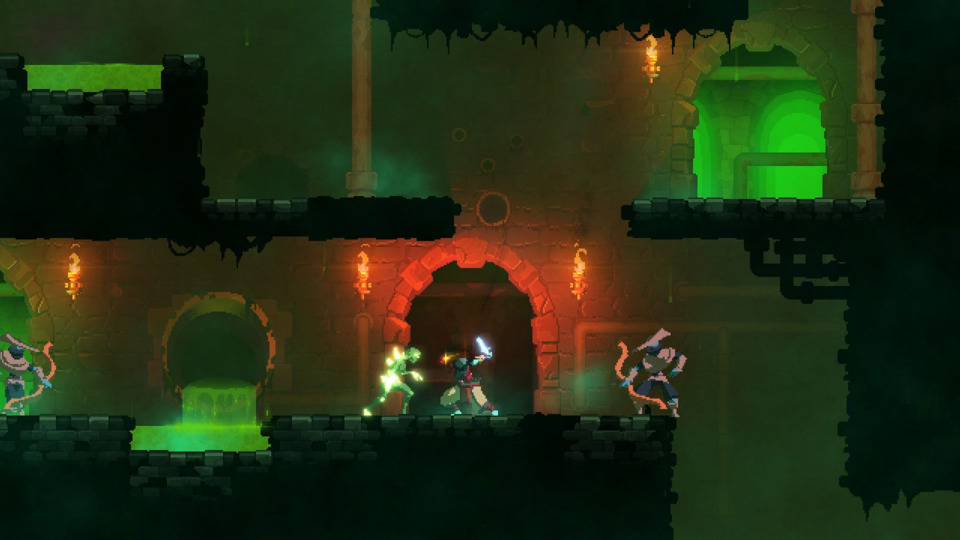
As much as I love the roguelike (e.g. Brogue) and rogueish (e.g. Binding of Issac) genres, it's getting increasingly rare for me to really get sucked into these sorts of games. Dead Cells was the first time in while that I had trouble putting one down. A highly challenging but fair action game where your strategy has to adapt based on the skills and items you find during your playthrough is right up my alley--however what really kept me coming back is the flow of combat. Even basic enemy attacks are highly threatening, but with good timing and positioning, you can escape from nearly every situation unscathed. You have to learn and intuit enemy attack timing, know of your weapon's combos and reach, and constantly be aware of all threats on screen. The result is a satisfying flow state, where, in the best of situations, there's no need for reaction speed--you unconsciously know exactly how many hits you can get in before rolling away and freezing the enemy behind you. It’s incredibly sleek and satisfying.
4. ZeroRanger
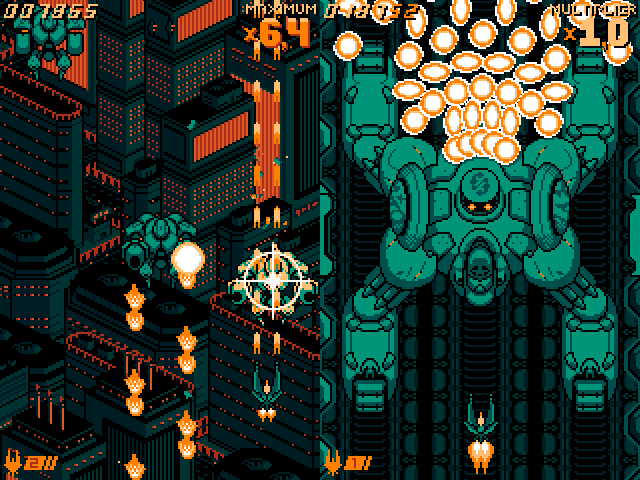
I'm a big fan of shmups and bullet hells in general, but this game caught me off guard. Its sleek palette and beautiful minimalism; its smoothly increasing difficulty and creativity of combat design; its constant references of notable games in the genre--it’s just a joy to play. It’s rough around the edges in some ways and I can’t speak to the secrets or endgame as I honestly haven’t beaten it yet, but every time I boot it up it makes me happy, easily earning it a place in my favorite games of the year.
3. Beat Saber
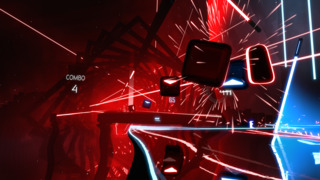
Oh man, Beat Saber. This game has justified VR to me. I’ve tried many VR titles, including other music games, but this is the first time your actions as the human controller line up perfectly with the game. Rather than awkwardly trying to recreate physics of real world objects without any form of feedback or physical boundaries, Beat Saber embraces what VR encourages you to do-- swing your arms violently around and hop around like a maniac--and makes it incredibly fun and satisfying. Cutting through objects in beat with the music is instantly enjoyable and getting into a flow state is almost euphoric. I could (and probably will) continue to play this game for years and not grow tired of it.
2. Return of the Obra Dinn
I’m generally a mechanics-loving gamer rather than a story-loving gamer--it’s rare that I’ll play a game for its narrative alone (even when I'm interested and want to see it to the end, I often have trouble finishing narrative games). Obra Dinn was maybe the fastest I’d ever been gripped by a game’s story, and it’s almost entirely due to the game's unique presentation and user-guided information discovery (though having a compelling story and setting certainly helps).
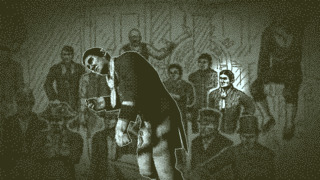
It’s essentially a linear detective story where you seek to discover what happened to the crew of a ship, but the way you uncover clues and piece information together makes the game almost feel like a sandbox. The tiniest clue could lead you down a rabbit hole of conjecture and investigation, opening up a new perspective on events that you’ve seen a dozen times.
For a whole weekend, I woke up thinking about Obra Dinn and went to bed thinking about Obra Dinn--it entirely consumed me. The closest experience I could relate it to was the live action theater/mystery that is Sleep No More in New York City. An incredibly unsettling and voyeuristic experience where you walk among the actors and are encouraged to explore the bizarre 3-story setting. Both experiences spark an intense curiosity which I rarely experience anymore.
Usually the manners in which stories are presented in games are heavily influenced other forms of media such as film and books. This is one of the first times that I felt a game pushed the boundaries of what our interactive medium can do for storytelling, and it has made me extremely excited for the future.
1. Celeste
Celeste is my favorite game of the year, perhaps even the last 5 years. It’s a highly polished indie platformer with smooth controls, a high skill cap, a compelling story, beautiful visuals and amazing soundtrack.
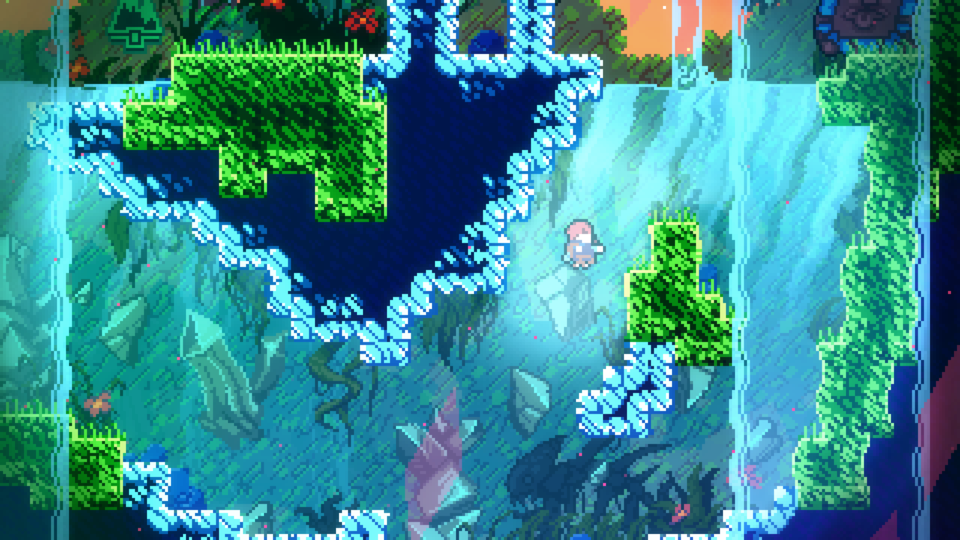
The uplifting journey of personal acceptance and growth permeates every aspect of the game. The charming characters and their personal journeys, the progression of music, the scenery and visuals, the gradually more complex game mechanics, and even the sound effects all work together to reinforce the core message of positivity. I can’t think of another game (let alone a platformer) where I genuinely felt more positive about the world after playing.
As a creator of somewhat complex games, perhaps the thing I admire most about Celeste is the intense restraint its developers showed in pacing and structuring the game. The gradual conveying of mechanics through gameplay and the freedom to tackle the challenges presented to you with creativity makes the platforming stand out from many other difficult platformers. But the highest level of play includes complex maneuvers and techniques that are never required to beat the main game. The fact that the developers could resist showing you the breadth of movement skills is incredible to me--*spoiler* there are even movement tutorials shown WAY after you complete the main storyline. Discovering that these techniques were available to you the whole time was something akin to learning how to wall-jump from the friendly aliens in Super Metroid.
In a stark contrast to the comparably welcoming and free-form approach one could use to solve the main game’s challenges--the "secret" levels task you with execution perfectionism. Highly challenging sequences that put me into a satisfying flow state, acting on impulse and reaction alone. When you master those tasks and return to the primary game, it feels like New Game + mode where, rather than your level or items giving you an edge, it’s your skills and mastery of the mechanics that let you experience the game in a completely different light.
Celeste is an instant classic that I will return to year after year.
Matthew’s Picks
5. Pathfinder: Kingmaker
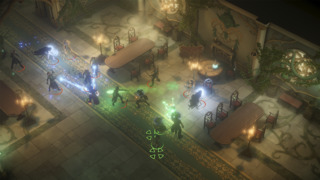
Modern CRPGs have mostly tried to streamline the pen-and-paper RPG design to make it more "digital friendly", but Kingmaker has a ridiculous commitment (like Baldur's Gate) to faithfully adapting the original pen-and-paper ruleset that inspired it. Normally I'd argue that was a terrible idea. Better to leave behind unnecessarily complex rules and not force them into a new, very different medium. But Kingmaker actually managed to make the translation work, and sorting out the system and rules becomes an enjoyable part of the process.
The character creation is impossibly deep. I spent nearly ten hours just reading about all of the classes and skills and creating characters. And then the game itself lives up to the promise of the character creation, letting you put your character through a huge range of stories and events. It's overly ambitious, with the kingdom management not feeling quite as great as it could, but the game on a whole is still a blast.
4. Hitman 2
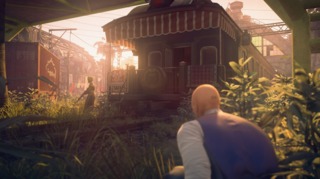
The Hitman franchise has been hit and miss, but these most recent entries have been fantastic. The developer understands what people like about Hitman and gives them exactly what they want: massive, complex levels with a huge level of freedom to play with the interlocking mechanics and systems. It has an understated sense of humor, self-aware of its inherent silliness and proud of it. I can only complain that some of the guidance for each potential assassination method is heavy handed; even with the UI markers removed some of the dialogue and items feel the need to SCREAM the solutions at players. I haven't actually finished all of the levels in this version as I'm still stuck perfecting Mumbai. But I've heard the best is yet to come and I'm confident the whole game will be as polished as the start.
3. Pandemic Legacy Season 2
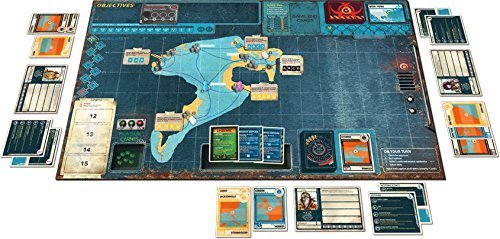
Board games have some of the most original and exciting design out there, and the "Legacy" line of games are a particularly interesting addition to the board game world. For those unfamiliar, the core concept is that the players make permanent alterations to the game every time they play and ultimately the game is "finished", never to be played again. Locations on the board are crossed out with permanent marker, cards are destroyed, while new cards are found or altered. This opens up the possibility for really unique design.
The standard Pandemic game is already excellent. It's a solid co-op experience of defending the world from a disease outbreak that's streamlined down into something that really anyone could enjoy, even those more familiar with Monopoly than Twilight Imperium. The "Legacy" version let the designer go absolutely nuts and change the game in ways you'd never do for a normal game. New mechanics and rules are added, slowly building into something so complex and messy that learning it wouldn't be fun and none of it would feel natural. But since that's done over time, across a dozen or more games, it works. You do end up with a Frankenstein Monster of a game that barely holds together, but it pulls you through and is fun to the end.
2. EXAPUNKS
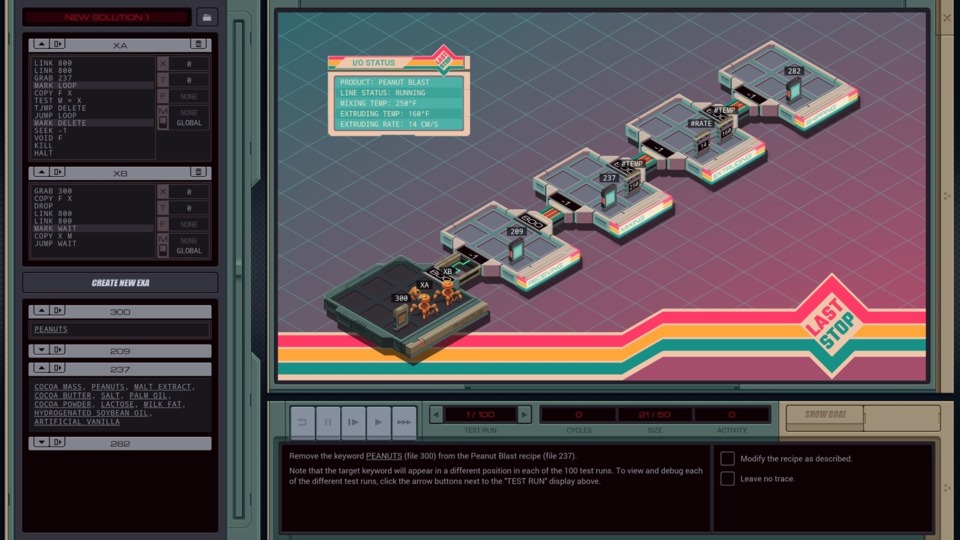
Zachtronics has been perfecting the "programming game" for years now, and EXAPUNKS is another brilliant addition to the lineup. It strikes a great balance between hardcore programming (you're writing in pseudo-assembly) with enough of a thematic and visual wrapper to make it exciting. EXAPUNKS turns you into a hacker in an alternate history '90s cyberpunk world, and the whole experience is impeccably crafted with top notch art, interface design, and (most importantly) puzzles. Like any Zachtronics game, you can blast through every puzzle with a quick and dirty solution, or you can spend hours and hours (like me) optimizing your code to be as short and efficient as possible. Infinifactory might still be my favorite Zachtronics game, but for those more interested in programming with code than with factories it doesn't get better than EXAPUNKS.
1. Subnautica
Subnautica is a perfect example of what a modern "immersive sim" can be. It drops the player in an alien world, carefully crafted and complex. Mastering the environment and game systems to survive and explore is an experience that is unmatched by anything else in recent memory.
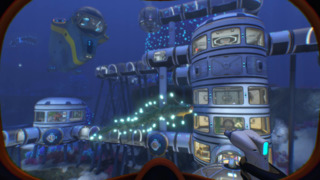
The world is huge and the player is never given a map. There are tools like sonar and beacons to aid in navigation, but those tools are limited and the player is mostly forced to rely on their own sense of navigation. Thankfully, the level design is sublime, subtly leading the player to key locations for resources, technology, or understated narrative moments. While you will get lost, you'll always find something exciting while sorting out where you've ended up.
The survival mechanics start out quite basic, but quickly ramp up into more exciting territory. The base building is more functional than most and you can make it as big or small a part of the game as you'd like. The narrative is great, but like the base building, it's entirely up to the player how much they want to engage in it. If you’d prefer, you can just get enough scrap together to make a mini-sub and spend hours exploring the ocean without engaging in any of the other mechanics available. The game only says "hey, go look over here!" maybe twice in the whole experience. It's the opposite of the Hitman design, entirely trusting the player to find everything through the intuitive systems built into the game.
I wish I could experience Subnautica again from scratch. A game like this only comes around once a decade. My only consolation is that next year the standalone expansion Below Zero will be released (with Subset Games’ composer Ben Prunty doing the music!). I'm pretty confident it'll be my GOTY for 2019.